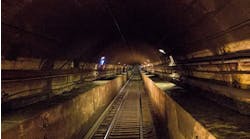BART's cautious proposal to try running trains later into the wee hours of Saturday morning, and delaying the start of Saturday daytime service, could be threatened by the results of a federally required study.
The study found that BART's plan, informally supported but not yet approved by the Board of Directors, "would have a disproportionately high and adverse impact on minority and low-income riders," according to a report released Monday.
Despite the results, board President Bob Franklin, who has made later service a priority, said he still hopes to find a way to make the experiment work. The board will consider whether to proceed with the plan at its meeting Thursday.
"We need to come up with a way to stay open a little longer to service people who go out late, as well as those who work late," he said.
The findings don't stop BART from moving ahead with the six-month test project, but would require the board to either show that the benefits of the change offset the disparity or come up with a plan to ease the effects.
BART officials, at the board's behest, devised a plan in which Friday service, which ends early Saturday morning, would conclude an hour later, with the final train leaving the end of the line at 1 a.m. But to preserve the amount of time needed to maintain the 38-year-old system, regular Saturday service would start an hour later - at 7 a.m.
Directors expressed support for the $1.2 million experiment in April, but held off on approving it until a civil rights study could be completed. Federal law requires transit agencies to study whether a service change would unevenly impact minority and low-income people. BART has paid special attention to the law since it lost $70 million in federal funding last year for failing to do sufficient studies on the Oakland Airport Connector.
Survey takers interviewed 867 late-night Friday riders and 1,021 early-morning Saturday passengers in multiple languages. They found that more minorities - 68 percent compared with 56 percent of all passengers - rode the first Saturday trains than the last Friday trains, as did more low-income riders - 53 to 49 percent. About 68 percent of the Friday night riders were under 35 compared with 38 percent of the early Saturday passengers.
Not surprisingly, 81 percent of late-Friday riders surveyed liked the proposed change while only 25 percent of the Saturday riders favored it. About 40 percent of Friday riders were commuting to or from work, with 27 percent visiting family or friends and 14 percent returning from restaurants, bars and clubs. About 70 percent of early Saturday riders were heading to or from work, 13 percent were taking airport trips and 8 percent visiting friends or relatives. A third of the Saturday passengers said they would be unable to make the trip without BART.
Copyright 2008 LexisNexis, a division of Reed Elsevier Inc. All rights reserved.
Terms and Conditions | Privacy Policy

